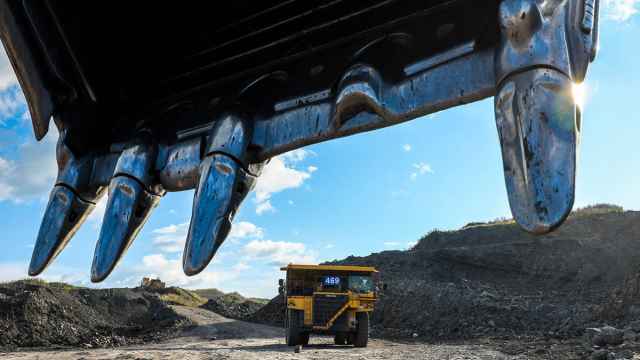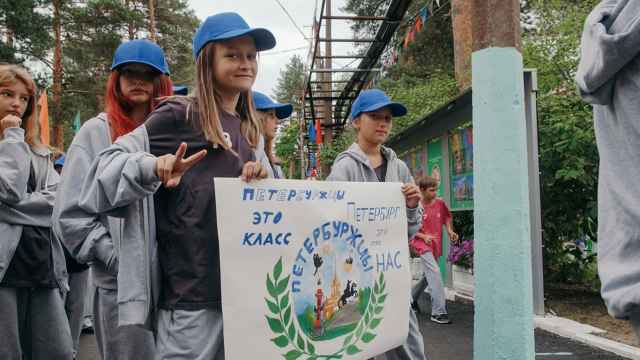LEIPZIG, Germany — European Union regulations are hampering Gazprom's use of its Nord Stream subsea gas pipeline, the Russian firm's deputy chief executive said on Thursday, demanding full access to an inland transit link.
Gazprom would continue to pressure the EU to lift restrictions on its use of the Opal pipeline meant to transport gas from a northern German landing point for Nord Stream's Siberian gas to the Czech Republic, Alexander Medvedev said.
"This results in Nord Stream being only half full, while in the winter we have had to use gas from storage to reach our customers," he told reporters, in the latest complaint by the Russian company against EU efforts to stop suppliers from dominating transport networks.
"We hope that reason and logic will prevail as pipelines should not lay idle. It is also a precedent for South Stream," he added in reference to the pipeline Russia is building under the Black Sea, due to be completed by 2015.
‘We hope that reason and logic prevail, as pipelines should not lay idle.’
Alexander Medvedev
Gazprom
Gazprom's access to the 470-kilometer Opal pipeline is limited because of the EU's 3rd Energy Package legislation, which aims to prevent firms that already dominate supply from dominating transport networks too.
The combined capacity of the Nord Stream pipeline is 55 bcm a year, but Gazprom, which heads the consortium of shareholders, has been pumping only half that.
However, there are other reasons why Gazprom's business might be suffering, other than regulation, and indicated by the fact that no one else is using Opal.
An oversupply of gas globally, customer demand for lower prices and competition from origins such as Norway have also been posing challenges.
Medvedev said Europe's renewable energy expansion and the rise of gas hubs that trade short-term gas undermined the role of Gazprom's pipeline gas as well.
However, his firm remained committed to Europe because it saw long-term demand rising. "We still have a product that is in demand," he said.
Gazprom believed that by 2020 there would be additional gas demand of 60 to 80 bcm per annum, as Europe's domestic resources were shrinking, he said.
Additional demand by 2025 would amount to 120 bcm and by 2035 to 200 bcm.
On Tuesday, Medvedev announced gas price cuts of 7 to 10 percent, or less for European buyers, also in response to competition from cheaper liquefied natural gas and coal in power generation.
Gazprom and Novatek have failed to agree on the terms of investment in a number of joint ventures in the Yamal-Nenets Autonomous District, Vedomosti reported, citing sources close to both parties.
In April last year, the two companies signed a cooperation agreement to carry out two liquefied natural gas (LNG) production projects on the Yamal Peninsula and one oil and gas development project on the Gydan Peninsula.
One of the LNG ventures was to be at the Tambei fields, where gas reserves are estimated at 1.56 trillion cubic meters. But in April Gazprom announced that the company would most likely produce LNG there without the assistance of Novatek.
It is not clear if a long-running dispute between the two companies has affected the negotiations on the joint ventures.
(MT)
A Message from The Moscow Times:
Dear readers,
We are facing unprecedented challenges. Russia's Prosecutor General's Office has designated The Moscow Times as an "undesirable" organization, criminalizing our work and putting our staff at risk of prosecution. This follows our earlier unjust labeling as a "foreign agent."
These actions are direct attempts to silence independent journalism in Russia. The authorities claim our work "discredits the decisions of the Russian leadership." We see things differently: we strive to provide accurate, unbiased reporting on Russia.
We, the journalists of The Moscow Times, refuse to be silenced. But to continue our work, we need your help.
Your support, no matter how small, makes a world of difference. If you can, please support us monthly starting from just $2. It's quick to set up, and every contribution makes a significant impact.
By supporting The Moscow Times, you're defending open, independent journalism in the face of repression. Thank you for standing with us.
Remind me later.





